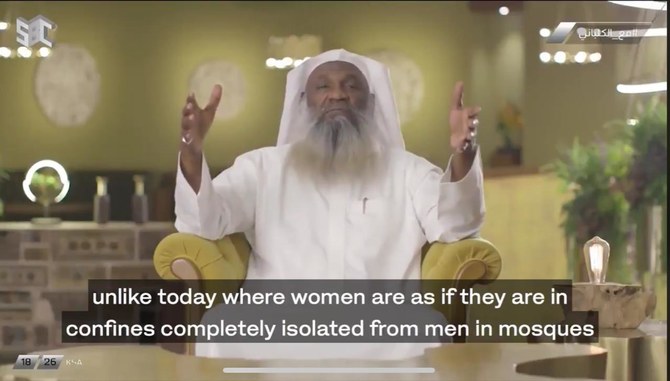JEDDAH: The former Imam of the Holy Mosque in Makkah, Sheikh Adil Al-Kalbani, has called for men and women not to be separated using a partition during prayers.
In a televised interview with Saudi Broadcasting Corp. (SBC), he said that this type of segregation did not happen during the era of Prophet Muhammad. He stressed the current segregation practices have no roots in Islamic tradition and are a result of unjustified “paranoia” of women, even during prayer.
“Sadly today, we are paranoid — in a mosque — a place of worship. They are completely separated from men, they cannot see them and can only hear them through microphones or speakers. And if the voice has been cut off, they wouldn’t know what is going on (during prayer),” he elaborated.
“In the Prophet’s era, and they are the most protective and God-fearing people. With all these traits, the men used to pray in the front and women prayed in the back of the mosque without a partition, not even a curtain. And today, it is a separated room, some even far from the original Prophet’s Mosque area, I believe this is some type of phobia toward women.”
He also touched on the issue some conservative men have in calling a woman by her name, pointing out that this should not be the case as there are also no roots of this fear in Islamic tradition. “Our daughters or sisters are no better than Aisha bint Abu Bakr (wife of the Prophet) — or the rest. All the Muslim women’s names are known and their fathers’ names are known. And they have given so much to society and the Ummah. It never harmed them that people knew their names.”
Commenting on recent reforms the Kingdom is witnessing, Al-Kalbani praised the improved socio-economic situation of women in the present era.
“We began to constantly hear that a woman became a deputy minister, ambassador and other high ranking positions.”















